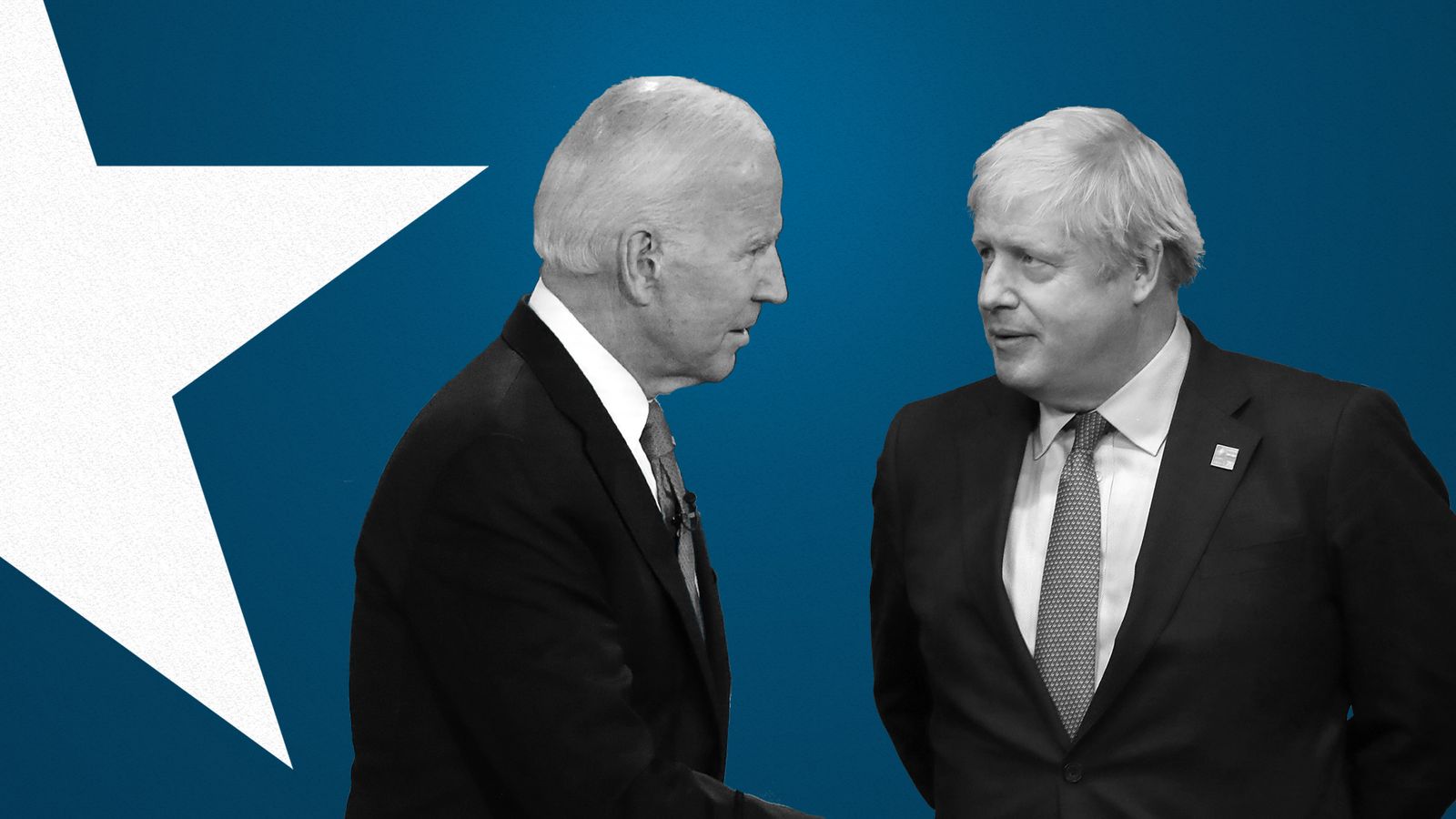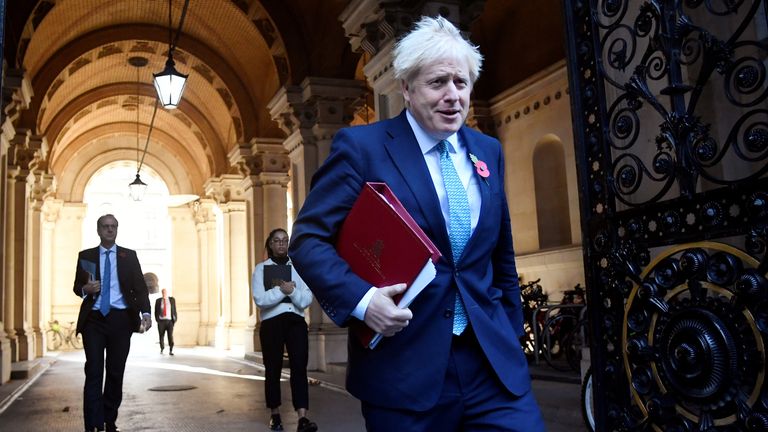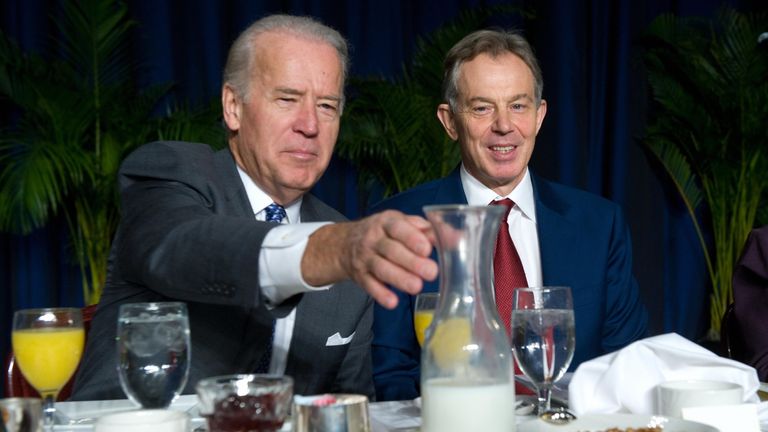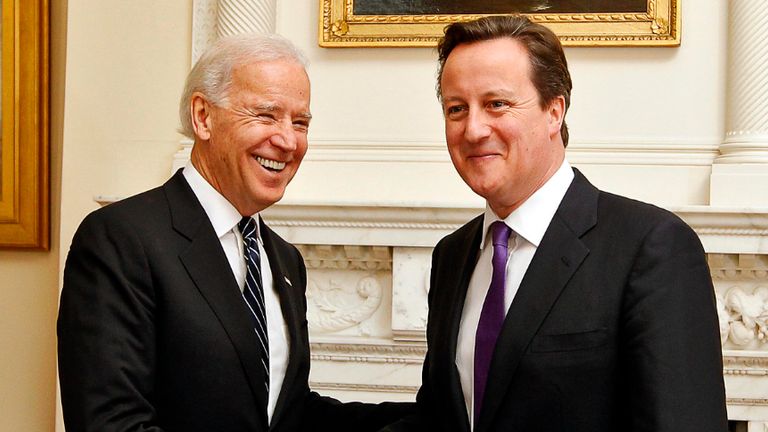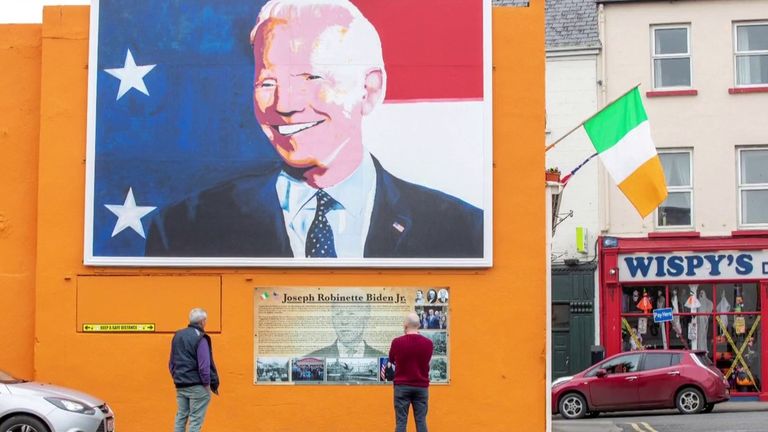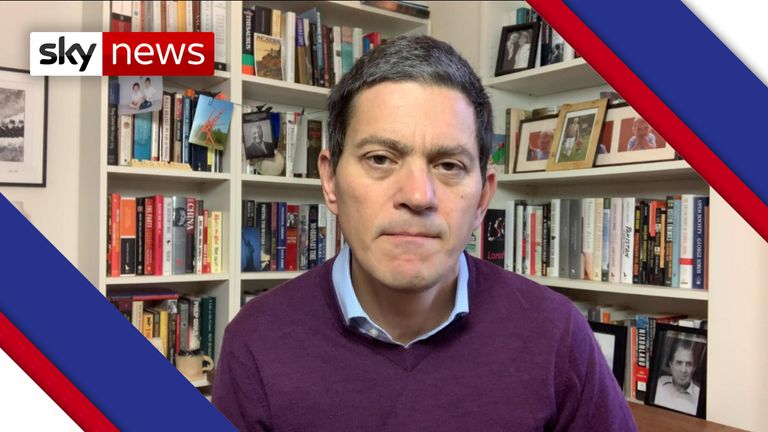Joe Biden has made no secret of his opposition to Boris Johnson’s career-defining flagship policy: Brexit.
Mr Biden claims – wrongly, according to the prime minister – that the Good Friday Agreement is threatened by the Internal Market Bill, currently going through the House of Lords.
It’s a dispute that has the potential to cause problems for the so-called “special relationship” between the UK and US, an accord that UK prime ministers care about much more than US presidents.
That was very much alluded to in Mr Johnson’s statement congratulating the president-elect.
He wrote: “The US is our most important ally and I look forward to working closely together on our shared priorities, from climate change to trade and security.”
Back in September, Downing Street got into the sort of unseemly clash with the Democrats that soured John Major’s early relationship with Bill Clinton after the Tories lent their help to his Republican opponent George Bush Senior.
The dispute began when Mr Biden tweeted: “Any trade deal between the US and the UK must be contingent upon a respect for the Good Friday Agreement and preventing the return of a hard border. Period.
“We can’t allow the Good Friday Agreement that brought peace to Northern Ireland to become a casualty of Brexit.”
It was a move that infuriated Mr Johnson and his Downing Street inner circle of Brexiteers. But in a slap-down that will not have endeared the prime minister to Mr Biden, Downing Street appeared to suggest the Democratic contender for the White House didn’t know what he was talking about.
“We will continue to work with our US partners to ensure our position is understood,” said Number 10. And the PM’s Brexit cheerleader Iain Duncan Smith sneered: “We don’t need lectures on the Northern Ireland peace deal from Mr Biden.”
Trump-loving Tory Brexiteers won’t forget, either, that Joe Biden was vice-president to Barack Obama when Mr Obama controversially declared during a visit to the UK in 2016 that Brexit would leave the UK “at the back of the queue” in trade deals with the US.
At the same time, Mr Obama was offended by Mr Johnson claiming his “part-Kenyan heritage” made him anti-British.
Officials in Brussels were claiming the Brexit negotiations had stalled while the outcome in Washington was in doubt, and now there’s a Biden victory the UK will feel the squeeze.
Inevitably, the relationship between Mr Biden and the prime minister – who have never met, Downing Street disclosed this week – will not be as close as that between Mr Johnson and his soulmate in the White House for the past four years, Donald Trump.
It’s claimed the president gave Mr Johnson his personal mobile phone number and they speak on a regular basis.
Ideologically, the PM’s relationship with “the Donald” has been as close as those between soulmates Margaret Thatcher and Ronald Reagan and Tony Blair’s with Bill Clinton.
So Mr Johnson has a big job on now to repair relations with the Biden camp.
That may not be easy. It’s claimed that after Mr Trump’s support for Brexit, Mr Biden wants to build relations with the European Union.
In that case, Mr Johnson could be frozen out and fall behind the likes of French president Emmanuel Macron and Germany’s Angela Merkel in the race to be invited to meet Mr Biden in the White House.
Charles Grant, director of the Centre for European Reform think-tank, told Sky News: “The Biden advisers I talk to are concerned about Brexit, partly just for reasons of national interest.
“They saw Britain as a friend and helper in Europe who helped steer the EU in a pro-US direction, pushing Atlanticist agendas on free trade, a strong NATO and standing up to Russia.
“More generally, Biden’s people are strong believers in multilateralism and believe the world is a better place with big international organisations with lots of power, like the World Health Organisation, the World Trade Organisation and the European Union.
“Although Boris Johnson, to be fair, is not against the World Health Organisation, the World Trade Organisation or the Paris climate change agreements, he has been strongly opposed to the EU, which Americans see as a force of stability in Europe.
“They see the West as weakened with Britain leaving the EU. They see the EU without Britain as weaker strategically, economically, diplomatically and in defence terms, facing other countries such as Russia.”
But it’s not all bad news for the prime minister, even though Mr Biden identifies himself as a passionate Irish-American.
While he emphasises his Irish heritage, because that always plays well in American politics, that was his mother’s side of the family. His father’s side hailed from Sussex.
Looking back on Mr Biden’s long career in US politics, spanning nearly half a century, UK critics claim he was a key figure in persuading President Clinton to grant a US visa to Sinn Fein’s Gerry Adams in 1994.
But a more careful and detailed look at 77-year-old Mr Biden’s long record suggests he is not at all anti-British, far from it.
Look back far enough into his record in US politics and the record shows that in 1982 the young Senator Biden was one of the strongest US supporters of the UK over the Argentine invasion of the Falkland Islands, while President Reagan and his Secretary of State Alexander Haig at first stayed neutral.
Mr Biden was the sponsor of a Senate resolution demanding that Washington declare itself to be on Britain’s side. In a TV interview at the time, he said: “My resolution calls for the US to state whose side we are on – the British side.
“The Argentines must be disabused of this notion that the US is neutral in this matter. It is clear that Argentina is the aggressor. It is clear that Britain is in the right and it should be clear to the whole world where the US stands.”
Challenged in the interview if he was risking damaging relations with South American allies, Mr Biden replied: “We lose a great deal more by not standing with our oldest and closest ally.”
So in many respects, Mr Biden is a good and reliable friend of the UK. But Brexit threatens to damage that friendship.
